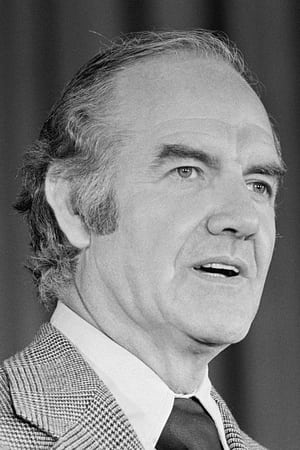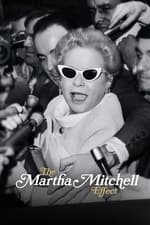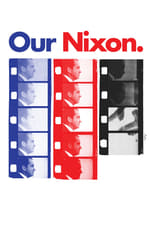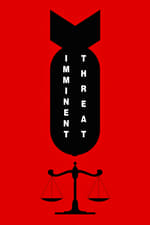Personal Info
Known For Acting
Known Credits 13
Gender Male
Birthday July 19, 1922
Day of Death October 21, 2012 (90 years old)
Place of Birth South Dakota, USA
Also Known As
- George Stanley McGovern
Content Score
100
Yes! Looking good!
Login to report an issue
Biography
George Stanley McGovern was an American politician, historian, U.S. representative, U.S. senator, and the Democratic Party presidential nominee in the 1972 presidential election. McGovern grew up in Mitchell, South Dakota, where he was a renowned debater. He became most known for his outspoken opposition to the growing U.S. involvement in the Vietnam War. He staged a brief nomination run in the 1968 presidential election as a stand-in for the assassinated Robert F. Kennedy. McGovern's long-shot, grassroots-based 1972 presidential campaign found triumph in gaining the Democratic nomination but left the party badly split ideologically, and the failed vice-presidential pick of Thomas Eagleton undermined McGovern's credibility. In the general election McGovern lost to incumbent Richard Nixon in one of the biggest landslides in U.S. electoral history. Though re-elected to the Senate in 1968 and 1974, McGovern was defeated in his bid for a fourth term in 1980.
As the first director of the Food for Peace program in 1961, McGovern oversaw the distribution of U.S. surpluses to the needy abroad and was instrumental in the creation of the United Nations-run World Food Programme. As sole chairman of the Senate Select Committee on Nutrition and Human Needs from 1968 to 1977, McGovern publicized the problem of hunger within the United States and issued the "McGovern Report", which led to a new set of nutritional guidelines for Americans.
George Stanley McGovern was an American politician, historian, U.S. representative, U.S. senator, and the Democratic Party presidential nominee in the 1972 presidential election. McGovern grew up in Mitchell, South Dakota, where he was a renowned debater. He became most known for his outspoken opposition to the growing U.S. involvement in the Vietnam War. He staged a brief nomination run in the 1968 presidential election as a stand-in for the assassinated Robert F. Kennedy. McGovern's long-shot, grassroots-based 1972 presidential campaign found triumph in gaining the Democratic nomination but left the party badly split ideologically, and the failed vice-presidential pick of Thomas Eagleton undermined McGovern's credibility. In the general election McGovern lost to incumbent Richard Nixon in one of the biggest landslides in U.S. electoral history. Though re-elected to the Senate in 1968 and 1974, McGovern was defeated in his bid for a fourth term in 1980.
As the first director of the Food for Peace program in 1961, McGovern oversaw the distribution of U.S. surpluses to the needy abroad and was instrumental in the creation of the United Nations-run World Food Programme. As sole chairman of the Senate Select Committee on Nutrition and Human Needs from 1968 to 1977, McGovern publicized the problem of hunger within the United States and issued the "McGovern Report", which led to a new set of nutritional guidelines for Americans.
Acting
|
||||||
|
||||||
|
||||||
|
||||||
|
||||||
|
||||||
|
||||||
|
||||||
|
||||||
|
||||||
|








